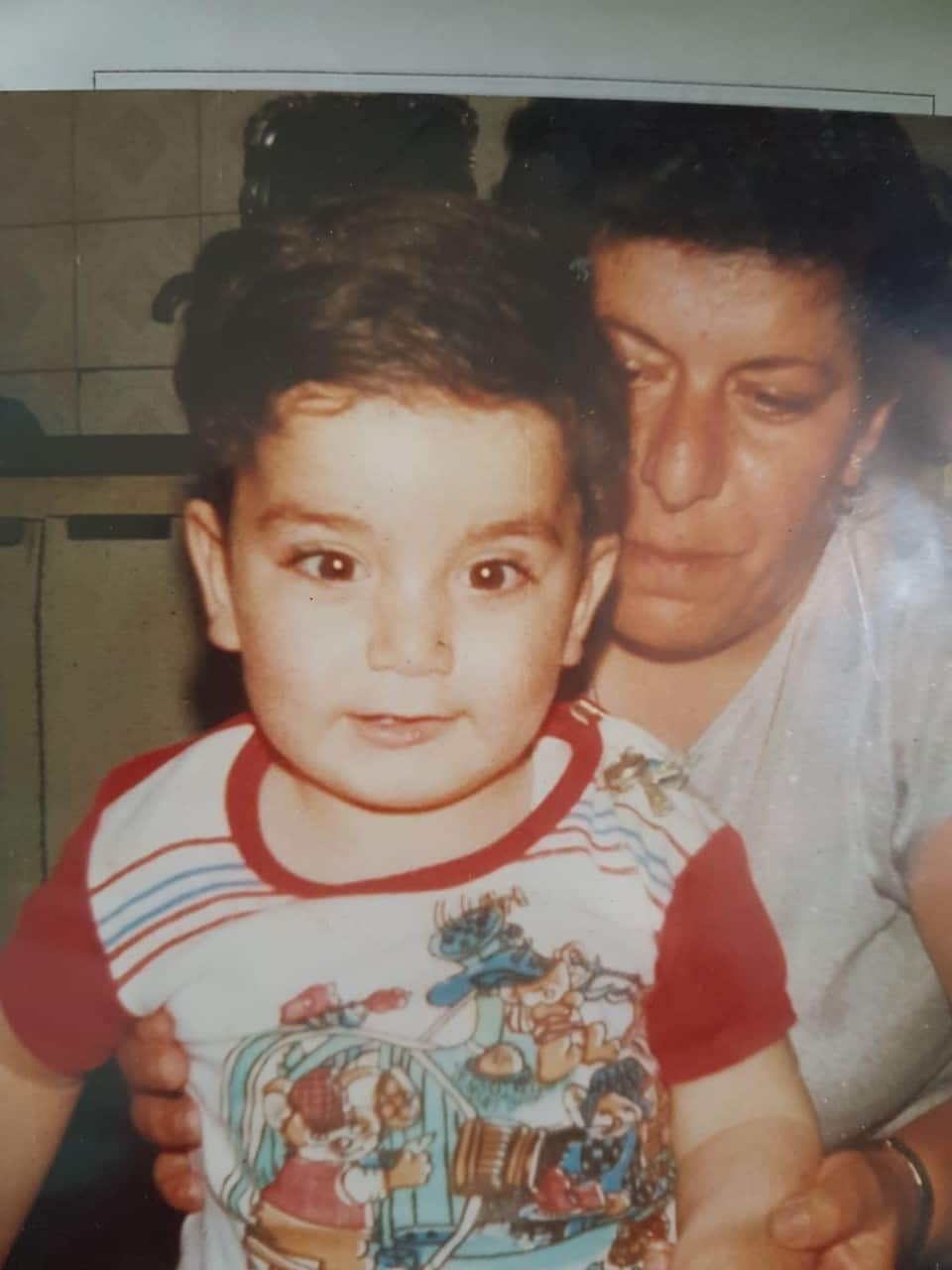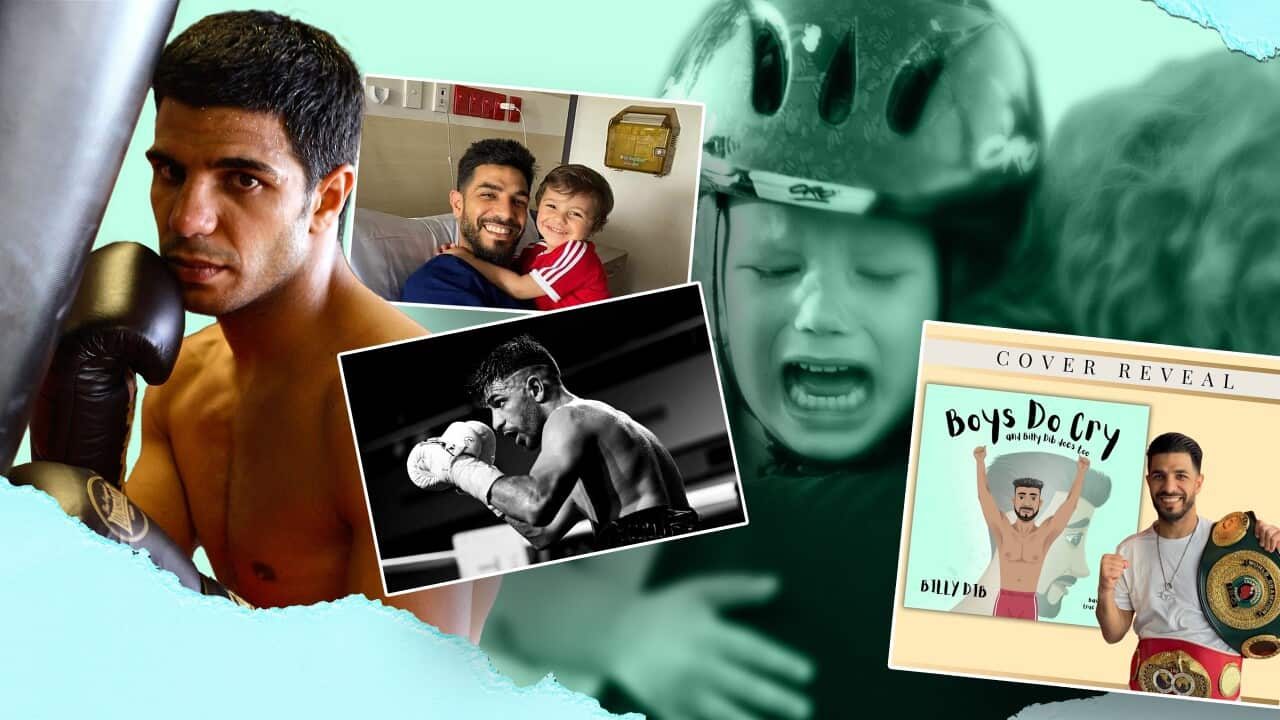For the first 27 years of his life, Fadi Chalouhy was not eligible to receive any form of official identification in Lebanon despite being born in the country to a Lebanese mother.
He lived during that time as a stateless person, unable to leave the country and restricted from applying for citizenship, a driver's licence, or even a library card.
But his fortunes changed in 2019 when he became the first stateless person to be granted an Australian skilled migrant visa.
He told SBS Arabic24 that Australia had given him a second chance at life, and he intended to make the most of it.
‘Nationality: not available’
Fadi was born in 1990 to a Syrian-Muslim father and a Lebanese-Christian mother. His father was a member of Syria’s notorious intelligence service which played a significant role in the Syrian occupation of Lebanon (1976-2005).
His father left the country without making an obligatory lodgement of Fadi's birth and also failed to register the marriage to Fadi's mother. Lebanese law prohibits women from registering the birth of their own child or passing down citizenship.
Lebanese law prohibits women from registering the birth of their own child or passing down citizenship.

Source: Supplied
Without his father’s lodgement and with no connection to him on-paper, Fadi became stateless before he could even walk.
“I didn’t have a birth certificate, I couldn’t get any form of identification, I couldn’t get a driver's licence, I couldn’t open a bank account and I had no legal presence in Lebanon,” he said.
“If someone killed me in Lebanon, legally he didn’t kill anyone, because I didn’t exist.” During his youth, Fadi recalled that his mother had to beg the sisters in their Christian village to enrol him in school.
During his youth, Fadi recalled that his mother had to beg the sisters in their Christian village to enrol him in school.

Source: Supplied
He was forced to hide every time a state inspector visited the school.
“I would hide in the bathroom, or my mother would take me to the house because I couldn't be seen in the school, I wasn’t registered.”
He recalled that on one occasion, the Christian Maronite court in Lebanon intervened on his behalf so he could sit two centrally administered national tests to qualify for university.
“My university ID was the only ID I had. It had, name: Fadi, family name: unknown, nationality: not available and date of birth: not available.”

Source: Supplied
Statelessness in Lebanon
In a country where 18 different religious sects share power, being without official identification can be dangerous.
“The Lebanese army would stop me at their checkpoint for seven hours,” he said.
“They didn’t know what to do with me, they thought I was lying when I say I don’t have official identification, and I can’t blame them.”
The issue of women not being able to pass their citizenship down remains a source of tension in Lebanon.
The country relies on a delicate sectarian power balance for co-existence.
The last time this balance was disrupted resulted in a bloody civil war that lasted for 15 years (1975-1990).
Despite the years of conflict, little changed in Lebanon, and nothing changed regarding the delicate power balance.
The civil war broke out following the arrival of hundreds of thousands of Palestinian refugees, who had been displaced from neighbouring Jordan.
Lebanon was one of the main countries that received them.
The majority of the newly arrived refugees were Sunni Muslim in faith and they were considered by other religious groups as a threat to the sectarian power balance.
It was feared that allowing women to pass their citizenship on to their husbands or children would lead to a flood of Palestinians becoming citizens of Lebanon, which would alter the power balance inside the Christian-majority country.
Human rights groups estimate that there are currently between 60 to 80 Thousands stateless people in Lebanon, aside from the Palestinian refugees, 73 per cent were born to Lebanese women.

Source: Supplied
'I contacted everyone including Angelina Jolie'
Growing up, Fadi said his mother was not educated and didn’t know what a stateless person was.
“My mum didn’t know what the UN was; I wasn’t registered with them as a stateless person until I was 22 years old. In the first 20 years in my life, I didn’t know what to do with myself; I didn’t know there is something called a stateless person.”
It was when his mother died of cancer in 2016 that the final string holding him to Lebanon was severed. He began searching for ways to leave the country; a journey he knew would be very long and arduous.
“I sent 1500 emails in almost two years, I contacted everyone including Angelina Jolie.”
In 2017, when all hope seemed lost, he received a response from
The organisation's aim is not to settle refugees in a safe country through humanitarian programs, but rather through skilled migrant schemes, founder John Cameron said.
Fadi had five years’ experience in project management, a Master in Financial Engineering and he spoke three languages - English, French and Arabic.
“The first question we ask is what your skills are. If you have skills and we think that employers in countries like Australia might be interested in you, then we are interested in you,” Mr Cameron said.
“We didn’t face a lot of the usual problems with Fadi, he spoke great English and had loads of skills.”
Despite not having any form of identification, the organisation decided to take up Fadi's case to match him with a potential employer.
Consulting giant Accenture was interested and offered Fadi a position as a management consultant in Sydney following four rounds of interviews.
“This was the first hurdle we celebrated. It was a wonderful moment, especially which he came through a competitive process.” Mr Cameron said.
“Then we had the problem of getting him out of Lebanon.”
As his situation was similar to that of Palestinian refugees in Lebanon, Fadi was issued with a travel document in June 2018, which was the first form of official identification he received. Then in February 2019, his application for an Australian Temporary Skill Shortage visa (subclass 482) was approved and he was on a plane bound for Sydney one month later.
Then in February 2019, his application for an Australian Temporary Skill Shortage visa (subclass 482) was approved and he was on a plane bound for Sydney one month later.

A travel document given to him by the Lebanese authorities in 2018. Source: SBS
His arrival was met with a small welcoming party at Sydney Airport.
“Until now I can’t believe I actually arrived in Australia, I thought it is easier to win the Lotto than to come here.”
During his first six months in Australia, he acquired an identification card and a driver's licence. He has travelled to Cairns in North Queensland recently with his girlfriend Phillippa Paull, whom he met a couple of months after arriving to Australia. He met her during a touch football mixed match organized by his company.
He has travelled to Cairns in North Queensland recently with his girlfriend Phillippa Paull, whom he met a couple of months after arriving to Australia. He met her during a touch football mixed match organized by his company.

Source: Supplied
He also travels with his company to Melbourne.
“I am a person with rights now, I have medical insurance, I have things that I got in six months, I couldn’t get for 27 years in the country that I was born in and the country my mother comes from, and I couldn’t even get a shred of an identity paper from them.” He now has a clear path towards everything he has ever wanted.
He now has a clear path towards everything he has ever wanted.

Fadi with his girlfriend Philippa Paull during a trip Source: Supplied
“I have a clear vision and a legal path to get the citizenship, it will take four to five years, but this is a very short period compared to the 27 years I waited in Lebanon,” he said.
“It is true that I am happy since I got here, but I also feel sad because I grew up in Lebanon, my culture is Lebanese and I love Lebanon.
“Am I happy in Australia? Of course. But I feel sorry for Lebanon, and for people in similar situations to mine in Lebanon. I was lucky to come to Australia, but what about them?”





